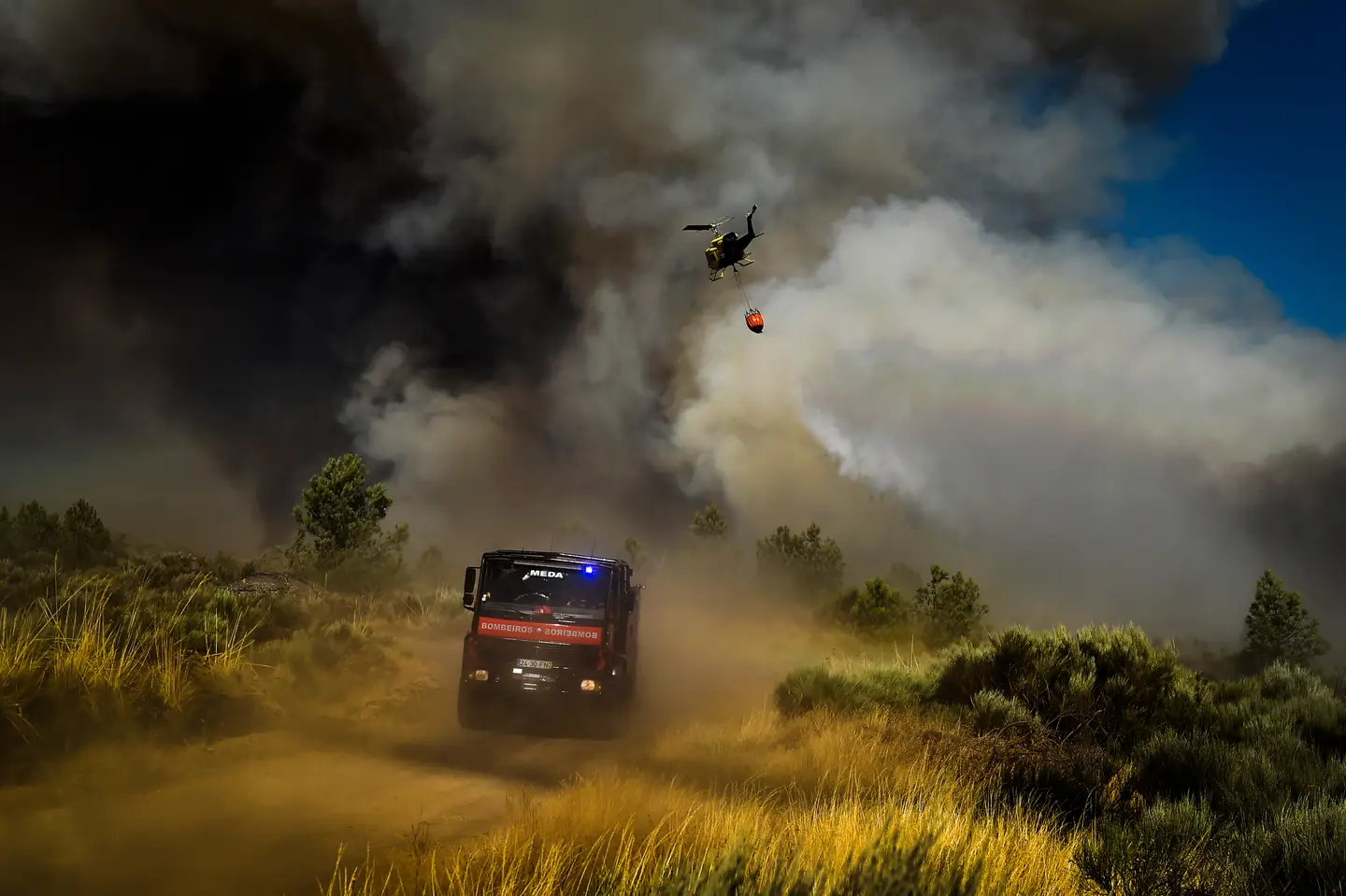‘Delta level’ lasts until September 30; number of firefighters “could exceed 20,000”
Portugal’s rural firefighting force is being reinforced today to reach its maximum capacity, with 14,155 operatives, 3,162 teams and 3,174 vehicles on standby, with 72 aircraft.
The National Operational Directive (DON), which establishes this year’s Special Force for Fighting Rural Fires (DECIR), indicates that resources are being reinforced for the third time this year with the entry into force of the so-called ‘reinforced – Delta level’, which lasts until September 30.
Over the next three months, 14,155 personnel, 3,162 teams and 3,174 vehicles will be operational – numbers that could increase if necessary, since this year’s DECIR provides for the mobilisation of additional resources to respond to more serious situations.
In this situation, the number of firefighters could exceed 20,000, a reinforcement that is made above all by volunteer firefighters.
This year’s DECIR provides for 70 aircraft for this period, which is considered the most critical, which could rise to 72 with the hiring of two heavy ‘Canadair’ aeroplanes, with the contract process still underway.
Of the total number of operatives involved, the largest number belongs to the fire brigade (8,061), of which 3,794 are from Permanent Intervention Teams, followed by the ICNF (2,430), the GNR (1,946) and the Special Civil Protection Force (216), according to DON.
The firefighting force for this year has increased slightly compared to 2023, with the exception of the aerial resources, (numbers identical) – with 261 more operatives, 78 more teams and 183 more firefighting vehicles.
Provisional figures from the Institute for Nature Conservation and Forests (ICNF) indicate that 1,796 rural fires have broken out since the beginning of the year, consuming around 2,918 hectares – 56% of which refers to scrubland, 19% to forest stands and 25% to agricultural land.
In the same period in 2023, there had already been almost 4,000 fires and around 8,800 hectares burnt.
LUSA




















